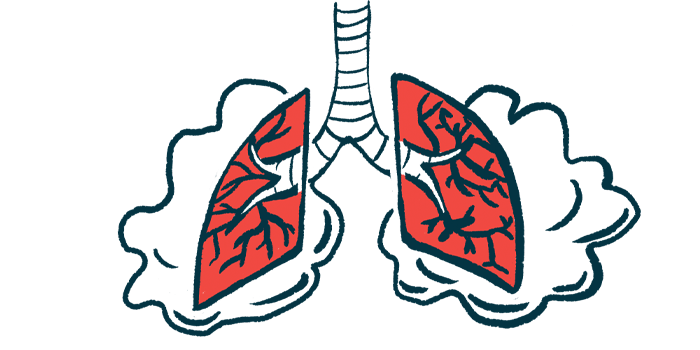Inhaled Antibiotics Tied to Greater Risk of Aspergillus Infection
Written by |

People with cystic fibrosis (CF) who use inhaled antibiotics are at more than three times higher risk of becoming infected with the fungus Aspergillus fumigatus, according to a new study.
Study results showed no association between Aspergillus infection and lung function decline, and available data demonstrated no clear benefits of treating the fungal infection in patients who are not experiencing symptoms.
The study, “Persistent Aspergillus fumigatus infection in cystic fibrosis: impact on lung function and role of treatment of asymptomatic colonization—a registry-based case–control study,” was published in the journal BMC Pulmonary Medicine.
CF is characterized by very thick mucus in the lungs and other organs, which can increase the risk of lung infections. While bacteria like Pseudomonas aeruginosa play a major role in many CF lung infections, fungi such as Aspergillus fumigatus are also common, with some studies suggesting that as many as one in three CF patients has A. fumigatus in their lungs.
Some A. fumigatus infections are asymptomatic — no overt symptoms — but others may cause an allergic reaction called allergic bronchopulmonary aspergillosis (ABPA).
While ABPA has been linked with worsening lung function for CF patients, the broader clinical implications of A. fumigatus infections, particularly those that are asymptomatic, is not completely understood. Whether it is beneficial to treat these infections also is unclear.
A group of scientists in Sweden conducted an analysis of data from the Swedish CF registry collected from 2014 to 2018.
“The aim of this study was to identify risk factors for A. fumigatus colonization, to analyze how colonization affects lung function, and to evaluate antifungal treatment of asymptomatic A. fumigatus colonization,” the scientists wrote.
The analysis included data for 437 people with CF, of whom 64 (14.6%) were chronically infected with A. fumigatus at some point during the study period.
Fungal infection risk higher
Demographic and clinical characteristics of these 64 patients were generally comparable to those of patients without the fungal infection. However, the use of inhaled antibiotics was significantly more common for patients infected with A. fumigatus. Statistical analyses indicated the risk of fungal infection was 3.1 times higher in patients treated with inhaled antibiotics.
Over two years of follow-up, measures of lung function gradually worsened in all patients, with no significant difference based on A. fumigatus colonization. However, patients with the fungal infection spent more time hospitalized (median 0.5 vs. 0 days over two years).
Patients with the infection also had generally higher levels of a type of immune cell called eosinophils, and of a type of antibody called IgE.
“In this retrospective study on persistent A. fumigatus colonization in CF, we identified an association between inhaled antibiotics and colonization, but there were no differences in subsequent lung function decline or in the use of [intravenous]-antibiotics between colonized and non-colonized patients,” the researchers concluded.
The team stressed that, from the available data, it’s impossible to say whether inhaled antibiotics directly caused the fungal infection, or if the association is indirect. (For example, patients with advanced disease being simultaneously more likely to become infected and to be prescribed inhaled antibiotics.)
Of the 64 patients infected with A. fumigatus, 22 developed symptoms attributable to the fungus, including four patients who developed ABPA.
The remaining 42 patients had asymptomatic infections. Among them, 19 were given antifungal treatments, most commonly a medicine called posaconazol (sold under the brand name Noxafil). Comparisons in lung function measures generally showed that lung function worsened more rapidly for patients who received antifungal treatments, though not all differences were statistically significant.
The researchers noted it’s hard to make conclusions about cause-and-effect from these data, but overall they concluded that “no benefits of antifungal treatment could be demonstrated.”







